What Do You Know for Sure?
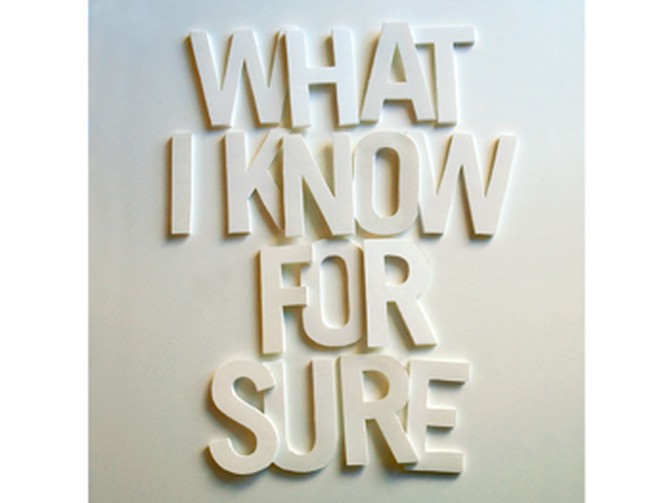
Illustration: Stephen Doyle
Looking for words to live by?
It could be considered among my most embarrassing moments. The first time I ever heard the question "What do you know for sure?" I was doing a live television interview in Chicago with renowned film critic Gene Siskel. We had been doing the usual promotional chitchat for the movie Beloved and he concluded the interview by saying, "Tell me, what do you know for sure?"
"Uhhhhhh, about the movie?" I asked, knowing he meant something more but trying to give myself time to think. "No," he responded coolly. "You know what I mean—about you, your life, anything, everything..."
"Uhhhhhh, I know for sure...uhhh...I know for sure I need to think about that question some more, Gene." I was clearly thrown and went home and thought about what he'd asked for two days.
I've since done a lot of thinking about what's certain, what's real, what's true. And Gene Siskel's question has inspired me to ask it of many others. Sometimes people (like me that first time) are caught off guard. But usually—as you'll see here—they rally with thoughtful and profound responses that reveal the essence of who they are.
— Oprah
"Uhhhhhh, about the movie?" I asked, knowing he meant something more but trying to give myself time to think. "No," he responded coolly. "You know what I mean—about you, your life, anything, everything..."
"Uhhhhhh, I know for sure...uhhh...I know for sure I need to think about that question some more, Gene." I was clearly thrown and went home and thought about what he'd asked for two days.
I've since done a lot of thinking about what's certain, what's real, what's true. And Gene Siskel's question has inspired me to ask it of many others. Sometimes people (like me that first time) are caught off guard. But usually—as you'll see here—they rally with thoughtful and profound responses that reveal the essence of who they are.
— Oprah
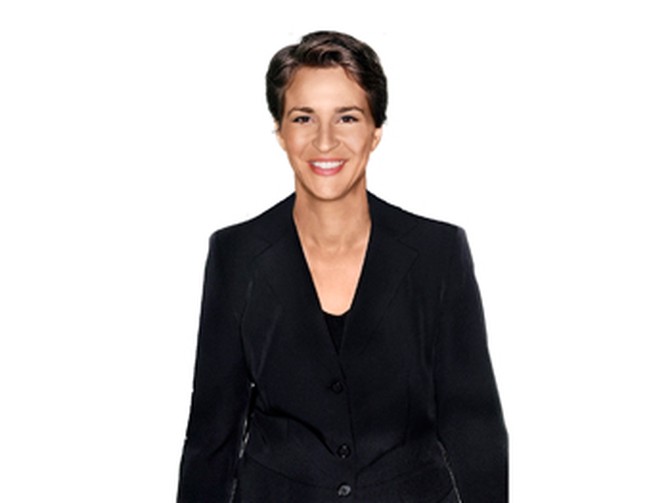
Photo: MSNBC
Rachel Maddow, on Leadership
Rachel Maddow is the host of The Rachel Maddow Show on MSNBC as well as her show on Air America Radio.
Humans are ambitious and rational and proud. And we don't fall in line with people who don't respect us and who we don't believe have our best interests at heart. We are willing to follow leaders, but only to the extent that we believe they call on our best, not our worst.
Humans are ambitious and rational and proud. And we don't fall in line with people who don't respect us and who we don't believe have our best interests at heart. We are willing to follow leaders, but only to the extent that we believe they call on our best, not our worst.
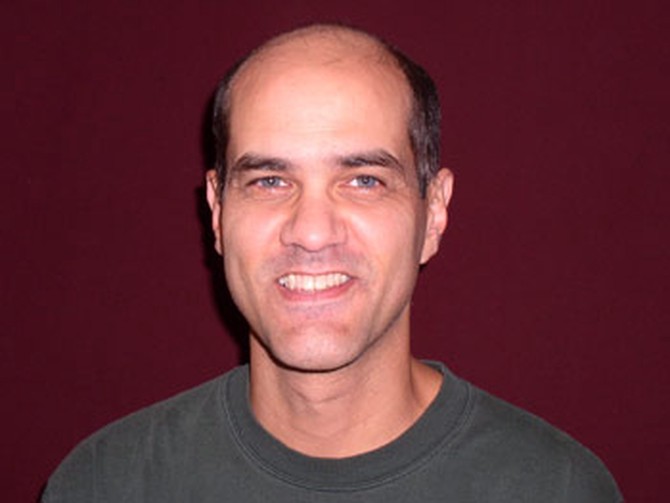
Photo: Denise Royal
"What I Know for Sure," by Bob Hicok
Some people, told of witness trees,
pause in chopping a carrot
or loosening a lug nut and ask,
witness to what? So while salad
is made, or getting from A to B
is repaired, these people
listen to the story
of the Burnside Bridge sycamore,
alive at Antietam, bloodiest day
of the war, or the Appomattox Court House
honey locust, just coming to leaf
as Lee surrendered, and say, at the end,
Cool. Then the chopping
continues with its two sounds,
the slight snap to the separation
of carrot from carrot, the harder crack
of knife against cutting board,
or the sigh, also slight, of a lug nut
as it's tightened against a wheel. In time,
these people put their hands
under water and say, not so much to you
but to the window in front of the sink,
Think of all the things
trees have seen. Then it's time
for dinner, or to leave, and a month passes,
or a year, before two fawns
cross in front of the car, or the man
you've just given a dollar to
lifts his shirt to the start
of the 23rd psalm tattooed
to his chest, "The Lord is my shepherd,
I shall not want," when some people
say, I feel like one of those trees,
you know? And you do know.
You make a good salad, change
a wicked tire, you're one of those people,
watching, listening, a witness
to whatever this is,
for as long as it is
amazing, isn't it, that I could call you
right now and say, They still
can't talk to dolphins
but are closer, as I still
can't say everything I want to
but am closer, for trying, to God,
if you must, to spirit, if you will,
to what's never easy for people
like us: life, breath, the sheer volume
of wonder.
Bob Hicok is the author of This Clumsy Living (University of Pittsburgh Press) and associate professor of English at Virginia Tech.
pause in chopping a carrot
or loosening a lug nut and ask,
witness to what? So while salad
is made, or getting from A to B
is repaired, these people
listen to the story
of the Burnside Bridge sycamore,
alive at Antietam, bloodiest day
of the war, or the Appomattox Court House
honey locust, just coming to leaf
as Lee surrendered, and say, at the end,
Cool. Then the chopping
continues with its two sounds,
the slight snap to the separation
of carrot from carrot, the harder crack
of knife against cutting board,
or the sigh, also slight, of a lug nut
as it's tightened against a wheel. In time,
these people put their hands
under water and say, not so much to you
but to the window in front of the sink,
Think of all the things
trees have seen. Then it's time
for dinner, or to leave, and a month passes,
or a year, before two fawns
cross in front of the car, or the man
you've just given a dollar to
lifts his shirt to the start
of the 23rd psalm tattooed
to his chest, "The Lord is my shepherd,
I shall not want," when some people
say, I feel like one of those trees,
you know? And you do know.
You make a good salad, change
a wicked tire, you're one of those people,
watching, listening, a witness
to whatever this is,
for as long as it is
amazing, isn't it, that I could call you
right now and say, They still
can't talk to dolphins
but are closer, as I still
can't say everything I want to
but am closer, for trying, to God,
if you must, to spirit, if you will,
to what's never easy for people
like us: life, breath, the sheer volume
of wonder.
Bob Hicok is the author of This Clumsy Living (University of Pittsburgh Press) and associate professor of English at Virginia Tech.
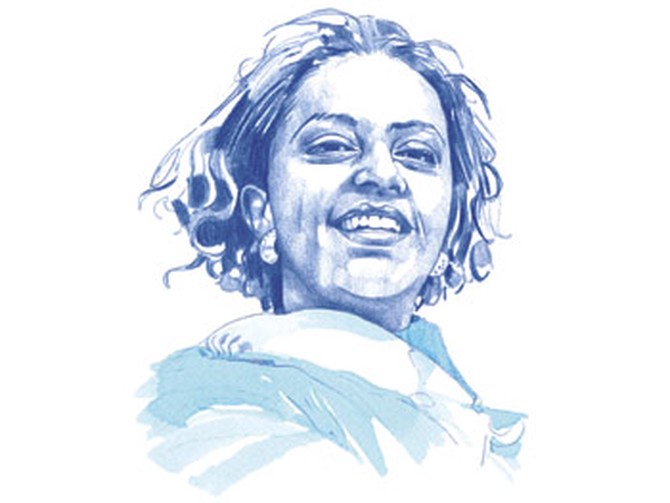
Illustration: Luke Wilson
Eleni Gabre-Madhin, on Coming Home
Former World Bank economist Eleni Gabre-Madhin returned to her native Ethiopia in August 2004 with the goal of establishing the Ethiopia Commodity Exchange, which would allow small farmers to more easily buy and sell products and store their surpluses rather than waste them. Gabre-Madhin's vision is that the exchange, which opened in April 2008, will help Ethiopia feed itself.
In 1984–85, the year of the famine that killed nearly a million Ethiopians, I was an undergraduate at Cornell. At dinner one night, other students started throwing food. And suddenly—shocking myself—I got up on a chair and I screamed, "Stop doing this! In my country people are starving!" In that moment, I knew that I owed my country something.
Anywhere the struggle is great, the level of ingenuity and inventiveness is high.
We spend most of our lives cutting down our ambitions because the world has told us to think small. Dreams express what your soul is telling you, so as crazy as your dream might seem—even to you—I don't care: You have to let that out.
— As told to Tish Durkin
In 1984–85, the year of the famine that killed nearly a million Ethiopians, I was an undergraduate at Cornell. At dinner one night, other students started throwing food. And suddenly—shocking myself—I got up on a chair and I screamed, "Stop doing this! In my country people are starving!" In that moment, I knew that I owed my country something.
Anywhere the struggle is great, the level of ingenuity and inventiveness is high.
We spend most of our lives cutting down our ambitions because the world has told us to think small. Dreams express what your soul is telling you, so as crazy as your dream might seem—even to you—I don't care: You have to let that out.
— As told to Tish Durkin
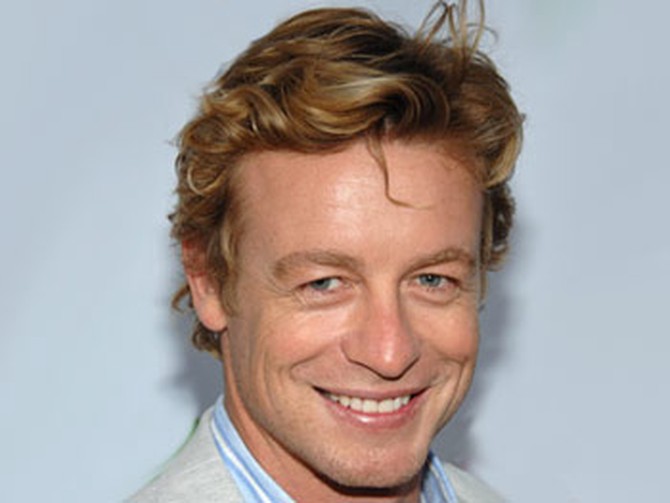
Photo: Jean-Paul Aussenard/WireImage.com
Simon Baker, on Expectations
Simon Baker stars in CBS's The Mentalist.
I don't want to be anyone else. My life is an amazing, wonderful thing. I think it takes a lot of time to get to that point, particularly when you're in a business where everyone's successes and failures are flashed up in lights.
We get mixed up with what we need and what we want. Growing up [in Byron Bay, Australia], I realized that I didn't need a lot. I still feel that if everything really went south, I could retreat there.
Expectations are somewhat dangerous. You can't control everything. At times, you have to sit back and go with it.
Just as the gardener has to come and trim back the edges of the lawn, there comes a time in a man's age when he has to start trimming back the edges a little. Hairs start to grow in places that you didn't know hair could grow in. I'm not overmanicured—don't worry. I just try to keep nature at bay slightly.
You can't get a decent meat pie in L.A. If you find one, tell me.
I don't want to be anyone else. My life is an amazing, wonderful thing. I think it takes a lot of time to get to that point, particularly when you're in a business where everyone's successes and failures are flashed up in lights.
We get mixed up with what we need and what we want. Growing up [in Byron Bay, Australia], I realized that I didn't need a lot. I still feel that if everything really went south, I could retreat there.
Expectations are somewhat dangerous. You can't control everything. At times, you have to sit back and go with it.
Just as the gardener has to come and trim back the edges of the lawn, there comes a time in a man's age when he has to start trimming back the edges a little. Hairs start to grow in places that you didn't know hair could grow in. I'm not overmanicured—don't worry. I just try to keep nature at bay slightly.
You can't get a decent meat pie in L.A. If you find one, tell me.
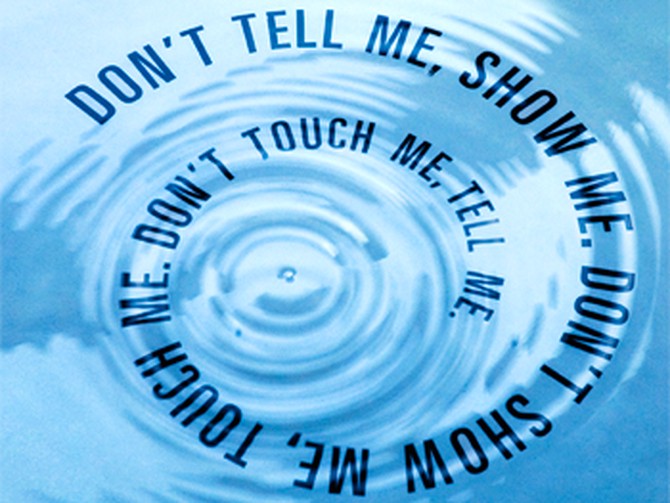
Illustration: Stephen Doyle
"What I Know for Sure"
By Stephen Doyle, Creative Director, Doyle Partners
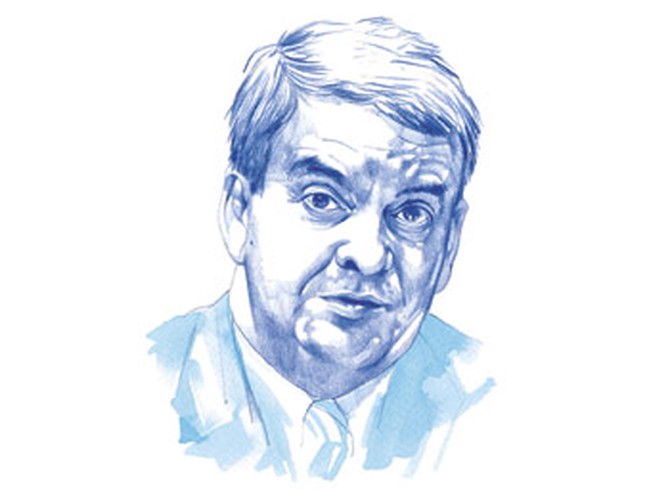
Illustration: Luke Wilson
Alberto Mora, on Justice
Appointed general counsel of the U.S. Navy by President George W. Bush in 2001, Mora soon learned of abusive treatment of "unlawful combatants" at Guantánamo. Over the next few years, he fought what he saw as an attempt to legitimize torture in the war on terror by arguing to the government's senior military and political officials that "cruel, inhuman, or degrading treatment" is not only immoral but illegal. Mora retired from the position in 2006.
Sometimes people fail to see that individual decisions have universal consequences.
At first it didn't cross my mind that [the mistreatment of detainees] could have been a deliberate policy. Some people in the administration who supported it were friends, colleagues, team members, people I respected. But as one professor put it, sometimes "good people do bad things for good reasons."
I felt the policies I believed in would be best for our country, but regardless of politics, my responsibilities were clear. I had to protect my client [the U.S. military and its commander in chief].
My mother, whose family fled the Communist regime in Hungary, would have killed me if I had not stood up against government brutality and cruelty.
— As told to Amanda Robb
Sometimes people fail to see that individual decisions have universal consequences.
At first it didn't cross my mind that [the mistreatment of detainees] could have been a deliberate policy. Some people in the administration who supported it were friends, colleagues, team members, people I respected. But as one professor put it, sometimes "good people do bad things for good reasons."
I felt the policies I believed in would be best for our country, but regardless of politics, my responsibilities were clear. I had to protect my client [the U.S. military and its commander in chief].
My mother, whose family fled the Communist regime in Hungary, would have killed me if I had not stood up against government brutality and cruelty.
— As told to Amanda Robb

Photo: Courtesy of AmandaRipley.com
Amanda Ripley, on Surviving Disasters
Journalist Amanda Ripley is the author of The Unthinkable: Who Survives When Disaster Strikes—and Why (Crown).
1. We are almost always our own first responders because official help cannot arrive quickly enough.
2. People think that if you're in a plane crash you're doomed, but between 1983 and 2000, 56 percent of passengers in serious crashes lived. Those who have an aisle seat and read the air safety cards are the most likely to survive.
3. The biggest misconception about catastrophes is that people panic. More often, our reactions slow down, even stop. After the planes hit the World Trade Center, hundreds of workers turned off their computers and cleaned up their desks. The average time before evacuating was six minutes. You have to move—and move quickly.
4. People may be most afraid of terrorists and freak viruses, but fire, floods, and lightning are the disasters to prepare for—to practice for.
5. Do every fire drill. Have the muscle memory of how to do things under extreme stress.
— As told to Amanda Robb

Photo: Itsuo Inouye/AP Images
Dara Torres, on Competition
Dara Torres, 41, is the oldest swimming medalist in Olympic history.
In the water, you simply don't know your age. And when you're around 18-year-old swimmers and you're trying to nap and they're playing loud music, that's when it hits you that you're old enough to be their parent.
Once a competitor, always a competitor. Everyone assumes that as you age your feelings of competitiveness dissipate, but they don't. People my age and older have been telling me they are going to do something they have never done before. I love that.
My goal was to win a gold medal in Beijing, but that didn't happen. The London Olympics are four years away, and I don't know now if that's my goal. But I do know I want to be at the World Championships next summer in Rome. You can count me in for that.
— As told to Sue Carswell
In the water, you simply don't know your age. And when you're around 18-year-old swimmers and you're trying to nap and they're playing loud music, that's when it hits you that you're old enough to be their parent.
Once a competitor, always a competitor. Everyone assumes that as you age your feelings of competitiveness dissipate, but they don't. People my age and older have been telling me they are going to do something they have never done before. I love that.
My goal was to win a gold medal in Beijing, but that didn't happen. The London Olympics are four years away, and I don't know now if that's my goal. But I do know I want to be at the World Championships next summer in Rome. You can count me in for that.
— As told to Sue Carswell
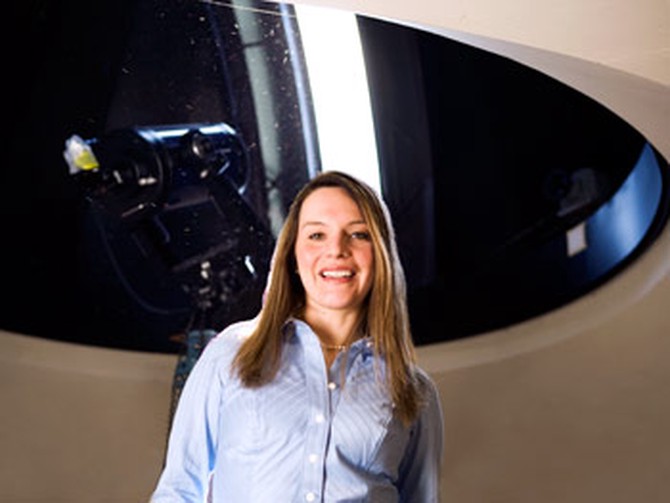
Photo: Brian Wilson
Alicia Soderberg, on Discovery
On January 9, 2008, Princeton astronomer Alicia Soderberg, who'd reserved time on a satellite telescope, began to review the new data. There was something unusual and inexplicably bright. Soderberg had picked the exact right place in the universe, at the exact right moment, and saw the birth of a supernova—an exploding star. Within hours, across the Northern Hemisphere, amateurs and professionals turned their telescopes to study an event that had never been seen before.
We called and e-mailed people. I was nervous—but you have to be ready to be wrong sometimes.
A lot of people don't analyze their data for months. I check right away, and this was one of those cases where something extraordinary was happening. The telescope sends an image, like one from a digital camera, to a NASA website (www.swift.gsfc.nasa.gov). This shows you need only a cell phone, a laptop, and a bit of energy, and you can make a big discovery.
Everyone asks, in the context of religion or academics, "Why are we here? Is there life on other planets?" All of these are fundamental questions—and they will be answered by astronomers.
— As told to Jack Otter
We called and e-mailed people. I was nervous—but you have to be ready to be wrong sometimes.
A lot of people don't analyze their data for months. I check right away, and this was one of those cases where something extraordinary was happening. The telescope sends an image, like one from a digital camera, to a NASA website (www.swift.gsfc.nasa.gov). This shows you need only a cell phone, a laptop, and a bit of energy, and you can make a big discovery.
Everyone asks, in the context of religion or academics, "Why are we here? Is there life on other planets?" All of these are fundamental questions—and they will be answered by astronomers.
— As told to Jack Otter
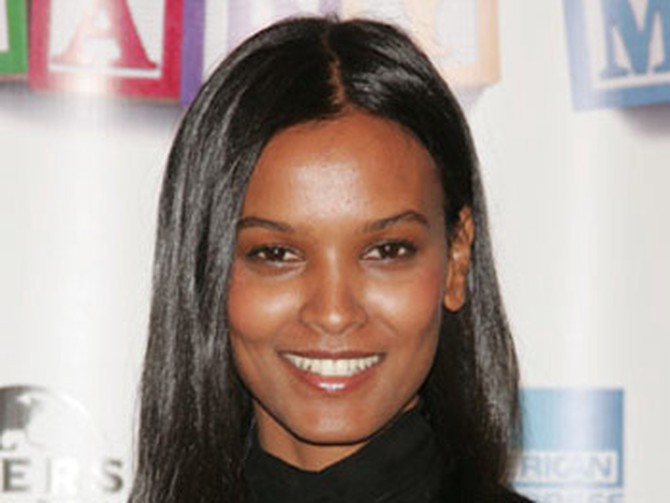
Photo: Jim Spellman/WireImage.com
Liya Kebede, on the Word "No"
Liya Kebede, the first woman of color to represent Estée Lauder, has established the Liya Kebede Foundation to improve the health of mothers and children in developing countries.
I hate the word "no." There have been many instances of no in my modeling career and in my advocacy work for maternal health. Global health statistics show that this is one of the least improved upon areas. There is no excuse for this. There are proven strategies to reduce maternal deaths. The absence of progress is a clear example of the lack of political will. I know the world is not easy. But I believe that if you are committed, you can change a no to a yes.
— As told to Polly Brewster
I hate the word "no." There have been many instances of no in my modeling career and in my advocacy work for maternal health. Global health statistics show that this is one of the least improved upon areas. There is no excuse for this. There are proven strategies to reduce maternal deaths. The absence of progress is a clear example of the lack of political will. I know the world is not easy. But I believe that if you are committed, you can change a no to a yes.
— As told to Polly Brewster

Illustration: Luke Wilson
Carolyn Maloney, on The Tax Code
U.S. Rep. Carolyn Maloney (D-NY) is the author of Rumors of Our Progress Have Been Greatly Exaggerated (Modern Times).
One of my constituents deducted $600,000 from his taxes—he'd taken business clients to Scores, a strip joint. Yet many of my constituents—men and women—cannot deduct the cost of their childcare. That is ridiculous.
— As told to Tish Durkin
One of my constituents deducted $600,000 from his taxes—he'd taken business clients to Scores, a strip joint. Yet many of my constituents—men and women—cannot deduct the cost of their childcare. That is ridiculous.
— As told to Tish Durkin
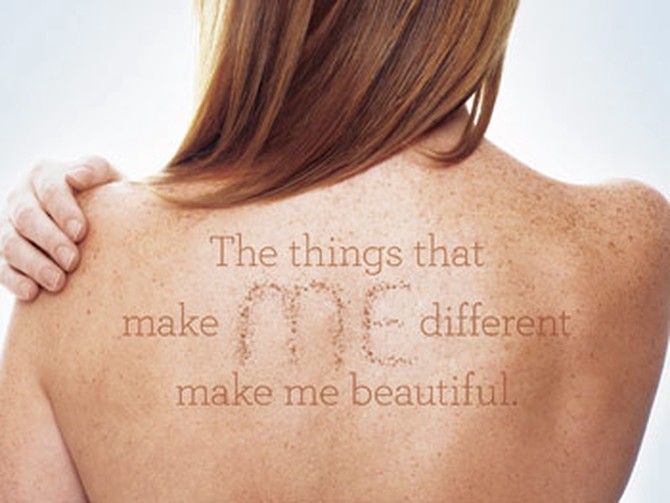
Photo Illustration: Number Seventeen Design
"What I Know for Sure"
By Bonnie Siegler and Emily Oberman, Number Seventeen Design

Illustration: Luke Wilson
Haleh Esfandiari, on Solitary Confinement
Iranian-American scholar Haleh Esfandiari is director of the Middle East program at the Woodrow Wilson Center in Washington, D.C. In early 2007, while in Tehran to visit her 93-year-old mother, Esfandiari was detained by the Iranian government. She spent nearly four months in solitary confinement before being released.
You never get over the experience of sudden arrest, interrogation, false accusation, and imprisonment. It shatters your confidence in the order of things, your belief that you are safe and secure. Solitary confinement can drive you out of your mind. I feel a quiet pride that I survived with my dignity. My rules of discipline—and they have seen me through the ups and downs of a long working career, revolutionary upheaval, and prison—are simple. I organize each day carefully; I make sure I exercise every day, even in a prison cell. I know that the small, human gesture comes to matter a great deal: When one of my guards noticed I was unable to hold a knife to peel my fruit, because my arthritis was acting up, she peeled and cut it for me. A human gesture in an inhuman place!
— As told to Tish Durkin
You never get over the experience of sudden arrest, interrogation, false accusation, and imprisonment. It shatters your confidence in the order of things, your belief that you are safe and secure. Solitary confinement can drive you out of your mind. I feel a quiet pride that I survived with my dignity. My rules of discipline—and they have seen me through the ups and downs of a long working career, revolutionary upheaval, and prison—are simple. I organize each day carefully; I make sure I exercise every day, even in a prison cell. I know that the small, human gesture comes to matter a great deal: When one of my guards noticed I was unable to hold a knife to peel my fruit, because my arthritis was acting up, she peeled and cut it for me. A human gesture in an inhuman place!
— As told to Tish Durkin
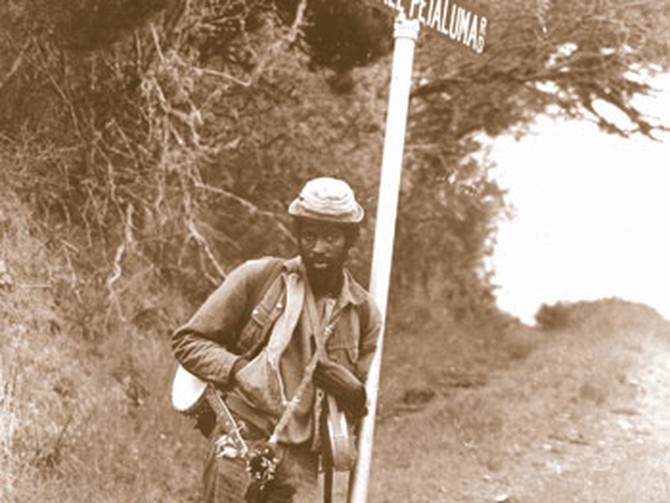
Self-Portrait: Courtesy of John Francis
John Francis, on Silence
After witnessing an oil spill in San Francisco Bay in 1971, Francis (above, on one of his many walks) thought about how one person can make a difference. His talks with neighbors about his decision to stop using motorized vehicles often turned into arguments. "I decided to give my town a gift of my silence, to not speak for one day," he says. "I started learning things—the first was that I hadn't been listening." He chose to be silent for a year—and then 16 more. In 1982 Francis founded Planetwalk to raise awareness of environmental issues.
When I didn't speak, it allowed a more intimate communication. People let me touch them. I could tap them on the shoulder. I could grab their hand and write a word on their palm. I could physically move them to see something.
Silence is a practice. You don't just think, "Oh, I got it now."
You don't need words to say "I love you." My family and I communicated all the things we needed to when I was silent.
— As told to Jack Otter
When I didn't speak, it allowed a more intimate communication. People let me touch them. I could tap them on the shoulder. I could grab their hand and write a word on their palm. I could physically move them to see something.
Silence is a practice. You don't just think, "Oh, I got it now."
You don't need words to say "I love you." My family and I communicated all the things we needed to when I was silent.
— As told to Jack Otter
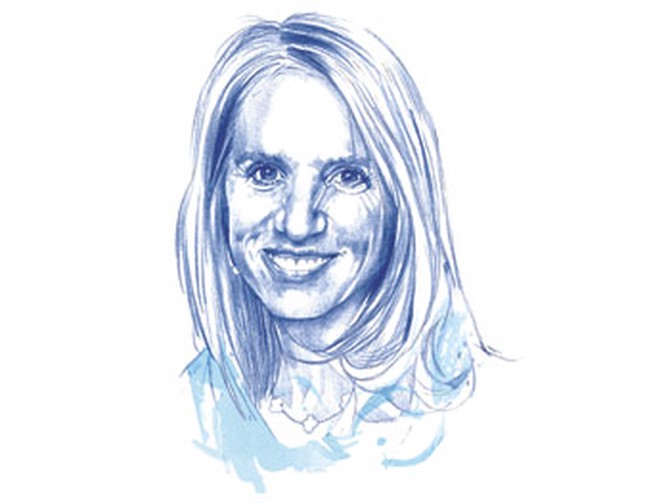
Illustration: Luke Wilson
Kerry Kennedy, on Meeting the Pope
In late 2005, Kerry Kennedy, the founder of the human rights organization Speak Truth to Power and the author of Being Catholic Now (Crown), met with Pope Benedict XVI. She asked him to consider changing the church's position on birth control, especially relating to AIDS prevention.
You never know when what you say or do will make a difference and why somebody in a position of tremendous power decides to take up an issue. As one of the largest providers of social services in the world, the Catholic Church is acutely aware of the AIDS pandemic. More than anything, I was hopeful that my words might be one more straw on the camel's back. The Pope could have said, "How rude!" but he said, "God bless you." I am grateful for that blessing. That was in November, and by April he announced that he'd formed a committee to look into the use of condoms. Maybe what I said had something to do it. I'll never know, but you always have to try.
— As told to Tish Durkin
You never know when what you say or do will make a difference and why somebody in a position of tremendous power decides to take up an issue. As one of the largest providers of social services in the world, the Catholic Church is acutely aware of the AIDS pandemic. More than anything, I was hopeful that my words might be one more straw on the camel's back. The Pope could have said, "How rude!" but he said, "God bless you." I am grateful for that blessing. That was in November, and by April he announced that he'd formed a committee to look into the use of condoms. Maybe what I said had something to do it. I'll never know, but you always have to try.
— As told to Tish Durkin
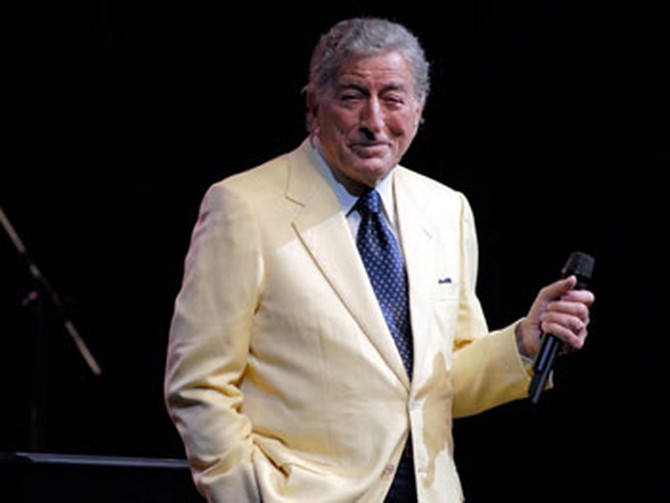
Photo: Chris Gordon/WireImage.com
Tony Bennett, on Other People
Tony Bennett's newest CD is A Swingin' Christmas .
I was going through a terrible divorce, and my personal life was a mess. I goofed so bad. That Christmas I was in a hotel room by myself. It was the first time I'd ever spent the holidays away from family. All of a sudden, I heard some music. I opened the door to find one of the greatest surprises of my life: There was a choir singing "On a Clear Day You Can See Forever." My friend Duke Ellington, who happened to be in town for a concert, had heard I was alone. So he sent a choir for me. For years this kindness from Duke lifted up my whole life. It showed me that no matter how bad things seem, there are always people in this world who care about others. That revelation changed my life.
— As told to Michelle Burford
To learn about Tony Bennett's charity to bring arts programs to public schools, visit ExploringtheArts.org
I was going through a terrible divorce, and my personal life was a mess. I goofed so bad. That Christmas I was in a hotel room by myself. It was the first time I'd ever spent the holidays away from family. All of a sudden, I heard some music. I opened the door to find one of the greatest surprises of my life: There was a choir singing "On a Clear Day You Can See Forever." My friend Duke Ellington, who happened to be in town for a concert, had heard I was alone. So he sent a choir for me. For years this kindness from Duke lifted up my whole life. It showed me that no matter how bad things seem, there are always people in this world who care about others. That revelation changed my life.
— As told to Michelle Burford
To learn about Tony Bennett's charity to bring arts programs to public schools, visit ExploringtheArts.org
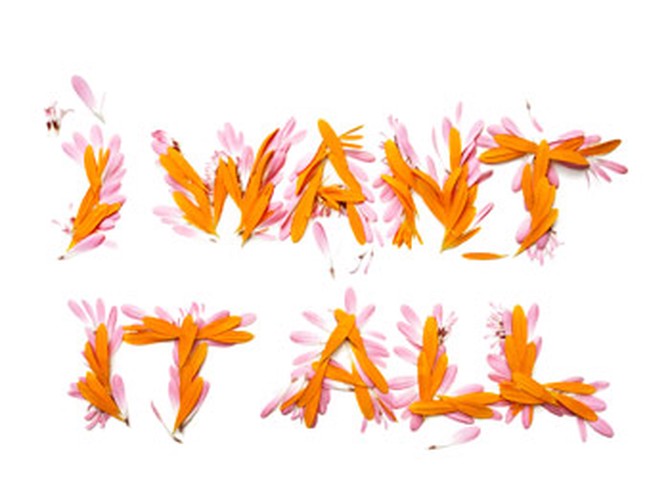
Illustration: Marian Bantjes
"What I Know for Sure"
By Marian Bantjes, Illustrator
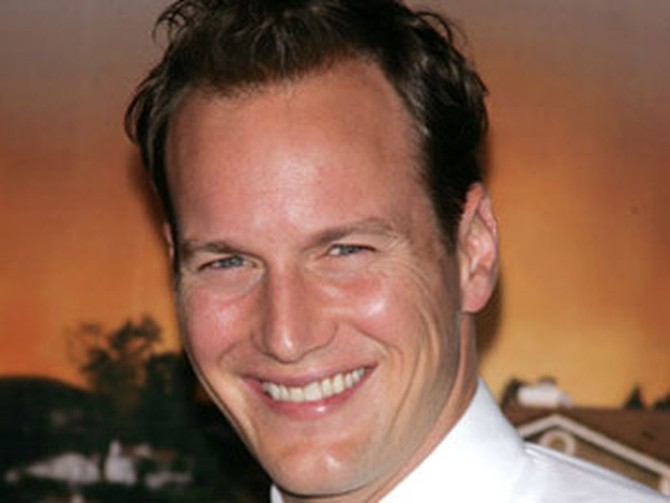
Photo: Jim Spellman/WireImage.com
Patrick Wilson, on Marriage
Patrick Wilson is appearing in the Broadway production of All My Sons with Katie Holmes and in the film Passengers.
I know three things for sure...
1. That no one says my name like my wife. I hear her say "Patrick Wilson," and I feel as if nobody's ever said it. That's never gone away.
2. That she has the most beautiful profile.
3. That no matter how late I put my son to bed, he will never sleep in.
— As told to Tish Durkin
I know three things for sure...
1. That no one says my name like my wife. I hear her say "Patrick Wilson," and I feel as if nobody's ever said it. That's never gone away.
2. That she has the most beautiful profile.
3. That no matter how late I put my son to bed, he will never sleep in.
— As told to Tish Durkin
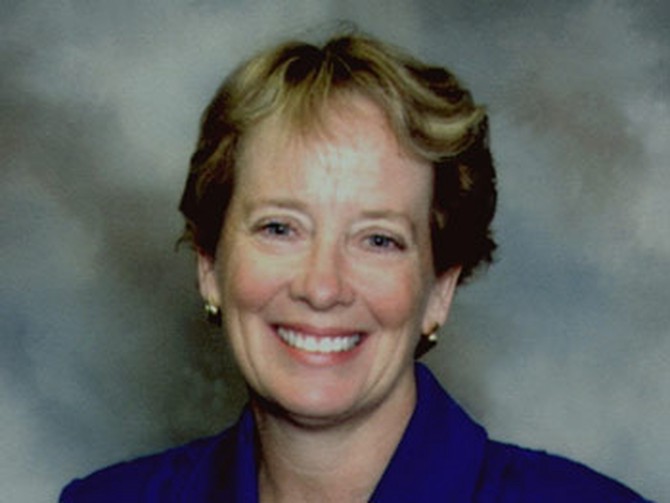
Photo: Courtesy of Dr. Julie Freischlag
Julie Freischlag, MD, on Life and Death
Julie Freischlag is the first female surgeon in chief at Johns Hopkins Hospital in Baltimore.
Human beings are unbelievably strong and terribly hopeful about what's going to happen next. Though everyone's faith is different, I've seen that people have faith in goodness. And whenever they get to the end of life, that goodness takes over. They believe that when they leave this world, a peace will come.
— As told to Amanda Robb
What do you know for sure? Read—and contribute—more answers to Oprah's favorite question.
Human beings are unbelievably strong and terribly hopeful about what's going to happen next. Though everyone's faith is different, I've seen that people have faith in goodness. And whenever they get to the end of life, that goodness takes over. They believe that when they leave this world, a peace will come.
— As told to Amanda Robb
What do you know for sure? Read—and contribute—more answers to Oprah's favorite question.
From the November 2008 issue of O, The Oprah Magazine

